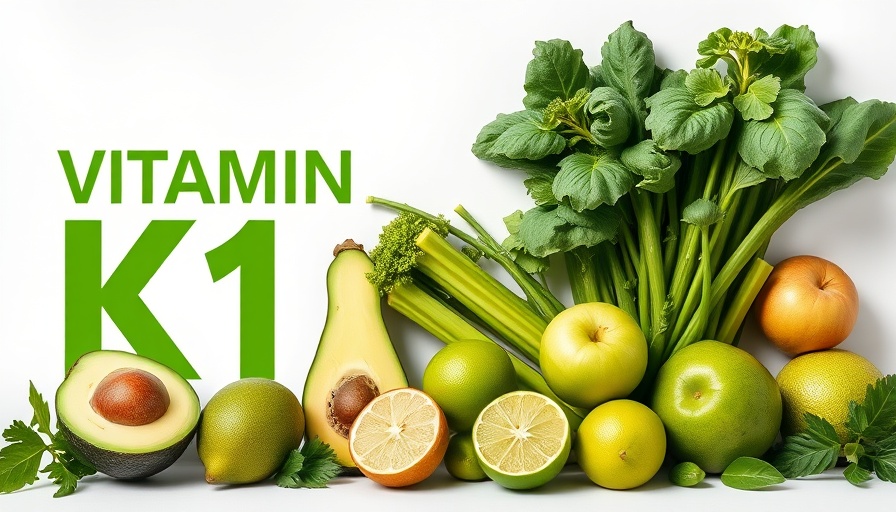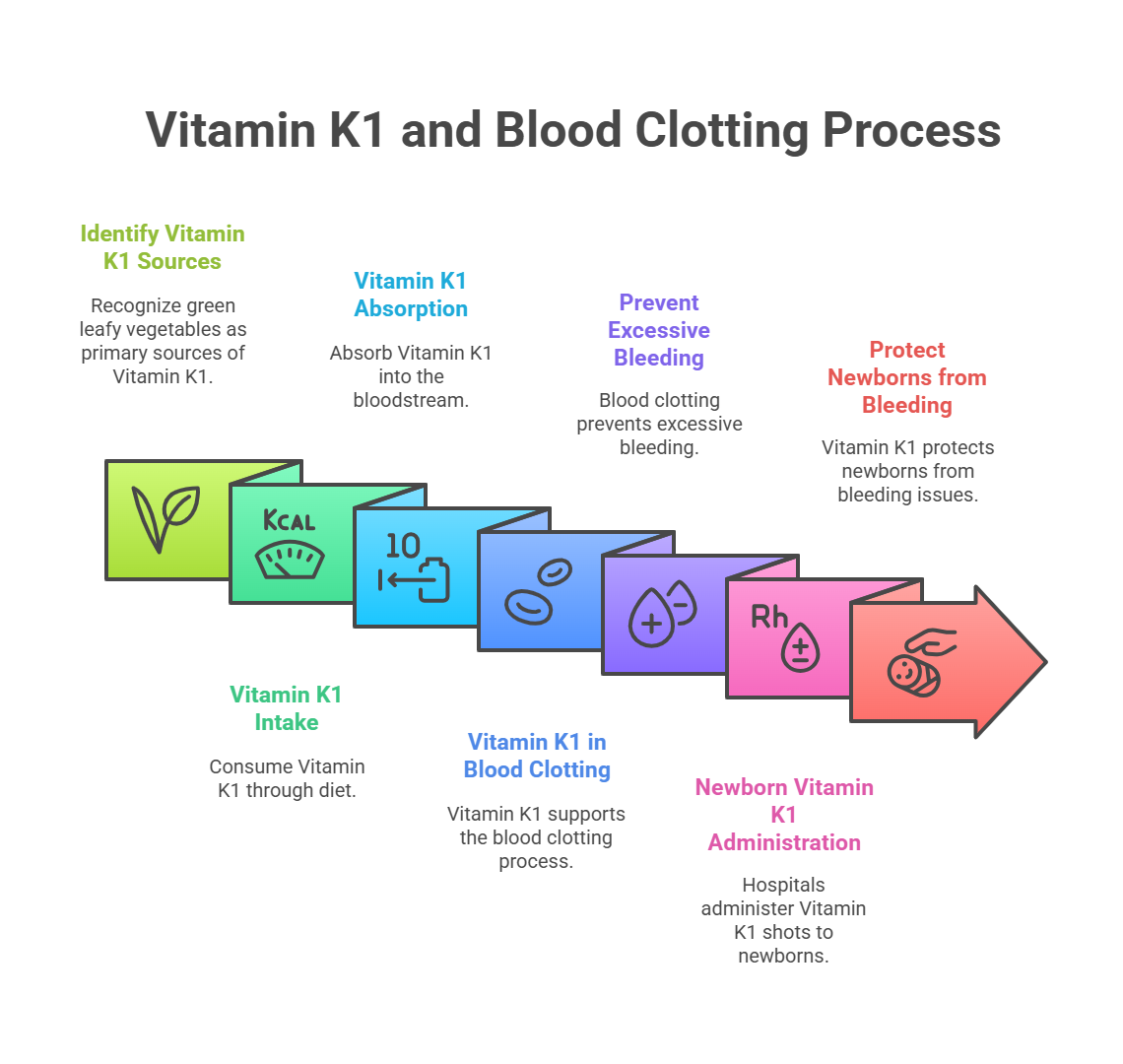
Understanding Vitamin K1: An Essential Nutrient for Health
When it comes to our health, vitamins often steal the spotlight, but today, we’re shining a light on a lesser-known vitamin: Vitamin K1. Although it may not get the recognition it deserves, Vitamin K1 plays a crucial role in our health, particularly in blood clotting and bone health. For parents and adults concerned with health and wellness, understanding this vitamin can help ensure that both you and your children are getting enough of this essential nutrient.
In Vitamin K1 Explained: Everything You Need to Know in 5 Minutes, the discussion dives into the critical role of Vitamin K1 in our everyday health, providing insights that sparked a deeper analysis on this essential nutrient.
The Role of Vitamin K1 in Our Bodies
Vitamin K comes in two main forms: K1 (phylloquinone) and K2 (menaquinone). Vitamin K1 is primarily found in green leafy vegetables while K2 sources include fermented foods and animal products. The main job of K1 is to support blood clotting, a vital process in preventing excessive bleeding. In fact, hospitals often administer Vitamin K shots to newborns to protect them against bleeding issues from the very beginning of their lives.
Why You Should Care About Vitamin K1
Besides blood clotting, Vitamin K1 plays a role in maintaining healthy bones. It activates proteins that bind calcium to the bone structure, contributing to overall bone strength. While many people may believe that only Vitamin K2 is important for bone health, K1 should not be overlooked. Additionally, some research indicates that Vitamin K, including K1, might assist in cardiovascular health by helping to keep calcium from accumulating in arteries.
How Much Vitamin K1 Do You Need?
The recommended daily intake of Vitamin K1 is 90 micrograms for women and 120 micrograms for men. Typically, a balanced diet consisting of plenty of vegetables is sufficient for most individuals to meet these requirements without the need for supplements. Incorporating foods such as kale, spinach, broccoli, and Brussels sprouts into your meals can provide you with the necessary amounts of K1. Fun fact: cooking leafy greens actually boosts K1 absorption, especially when combined with healthy fats like olive oil!

Who Might Be at Risk for Vitamin K1 Deficiency?
Some individuals may find it challenging to consume enough Vitamin K1 through their diet. Those with fat absorption disorders, such as celiac disease or Crohn's disease, and individuals on long-term antibiotics may be at risk. Additionally, anyone with very low vegetable intake or liver disease can struggle to obtain adequate levels of K1. If you are on blood thinners like Coumadin, it’s essential to monitor your Vitamin K intake closely, as fluctuations can affect your medication's effectiveness.
Embracing Leafy Greens for Better Health
While Vitamin K1 may not be trending, its health benefits highlight the importance of incorporating a variety of vegetables into your diet. Daily meals can and should include leafy greens, which are not just tasty but are a powerhouse of nutrients. This is particularly important for families, as encouraging kids to eat their greens can foster healthy habits early on.
Final Thoughts on Vitamin K1
In conclusion, while Vitamin K1 might not receive the fame it deserves, its essential role in blood clotting and bone health makes it a nutrient worthy of attention. Adults and kids should focus on a diet rich in vegetables to ensure they and their families are getting the necessary doses of this crucial vitamin. Remember, health begins on your plate—so keep those greens in your meals!
Disclaimer: The information provided on this website is for general informational purposes only and should not be considered medical advice, diagnosis, or treatment. Always consult a qualified healthcare professional before making any decisions or taking actions related to your health, including but not limited to medical conditions, treatments, diets, supplements, or exercise programs. The content on this site is not intended to replace professional medical guidance. The website and its authors are not responsible for any actions taken based on the information provided. Ask your doctor or licensed medical professional.
 Add Row
Add Row  Add
Add 




 Add Row
Add Row  Add
Add 

Write A Comment